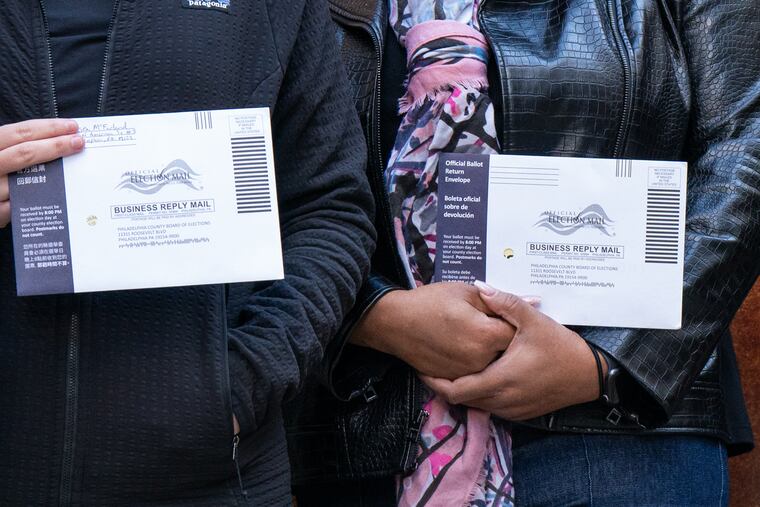Letters to the Editor | Oct. 20, 2024
Inquirer readers on secure elections and learning from the war in Gaza.

Secure elections
As a former governor of Pennsylvania and a prior member of the Bucks County Board of Elections, I have witnessed firsthand the strength and resilience of our election systems. In response to concerns raised in The Inquirer about misinformation, legal challenges, and potential delays this November, I write to assure my fellow Pennsylvanians that our elections are secure. Election officials have been rigorously trained, and reforms implemented in recent years have fortified our voting process.
Every first-time voter must show personal ID such as a valid driver’s license. Pennsylvania collaborates with other states to reduce duplicate registrations. County officials ensure ballot drop boxes are constantly monitored by video surveillance, and no voting equipment is ever connected to the internet. In short, Pennsylvania has secure infrastructure in place to ensure that every legitimate voter can vote and be counted.
Despite these positive advancements, we continue to see a concerted effort to spread misinformation about the election process. It is essential that all Pennsylvanians, and especially fellow Republicans, work to counter these false narratives with verifiable research, facts, and transparency. Elections are a cornerstone of democracy, and together we must defend these institutions and foster faith in the system.
Mark S. Schweiker, 44th governor, Commonwealth of Pennsylvania
Teachable moment
Daily, with the swipe of a finger on a phone or a click of a link, people are bombarded with news that never seems to quit, such as a divisive presidential election, national and global devastation from weather events, and especially the crisis in the Middle East.
Whether through heated discussions, protests, sit-ins, or even encampments, the debate about the conflict in the Middle East has spilled into schools and classrooms across the country. The Philadelphia School District has not been exempted. To address these issues, we raised awareness of the district’s board policy, which governs how students and staff can exercise freedom of expression. We also encouraged schools to engage in critical dialogue about the meaning conveyed by speech and symbols, and the impact they have on school communities.
Even with good faith efforts toward building understanding, challenges remain. Our top priority is ensuring our schools are havens that allow our students and staff to be safe — physically, mentally, emotionally, and socially. In that spirit, we have taken a range of strategic approaches to address the Middle East conflict, including partnering with our colleagues at Temple and the University of Pennsylvania to increase understanding of antisemitism and Islamophobia, as well as strategies to enhance productive conversations across differences.
We also meet regularly with a diverse range of community advocates who promote respectful dialogue as we address immediate and emerging concerns. And our chief inclusion officer hosts forums where students have the opportunity to be heard, learn different perspectives from their peers, and feel supported by district leaders. As superintendent, it is my responsibility — no matter how difficult or controversial — to always center the needs of our students and ensure everyone can feel seen, heard, and protected.
Tony B. Watlington Sr., superintendent, Philadelphia School District
Join the conversation: Send letters to letters@inquirer.com. Limit length to 200 words and include home address and day and evening phone number. Letters run in The Inquirer six days a week on the editorial pages and online.